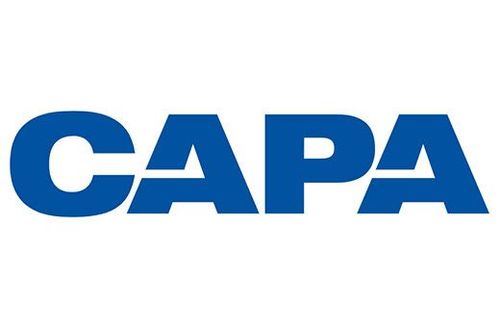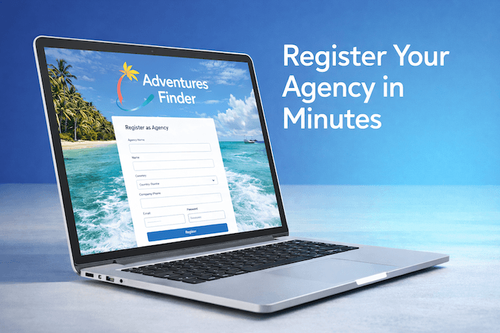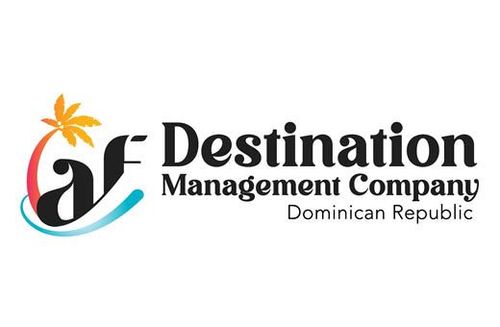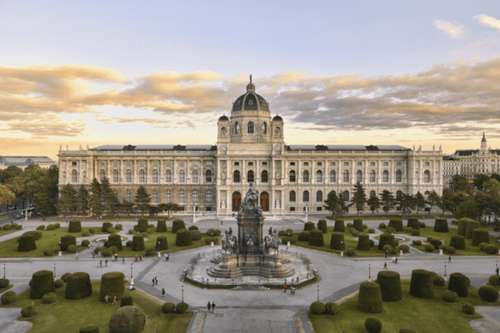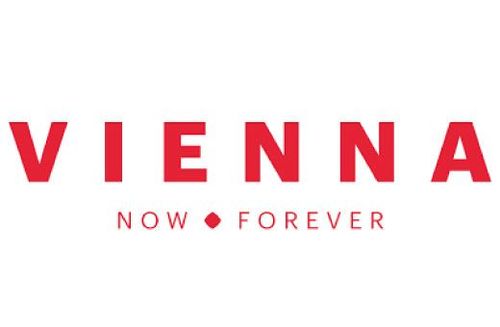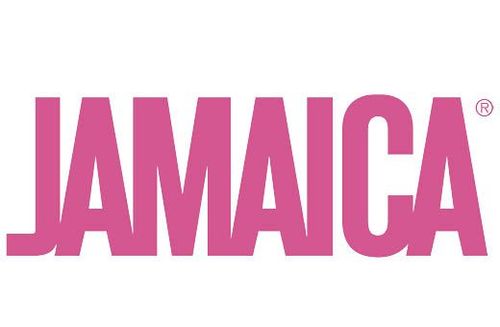Where travel agents earn, learn and save!
News / Etihad Airways, Group CEO Tony Douglas: "never waste a good crisis"
Interview with Etihad Group CEO Tony Douglas
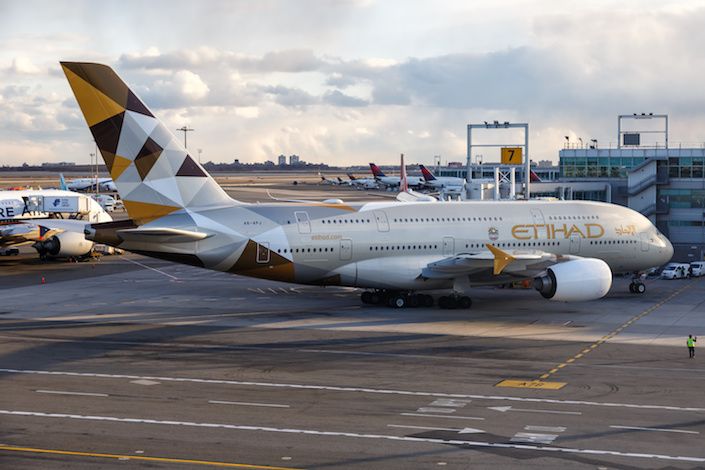
Talking at the CAPA Live on September 8, 2021, Etihad Group CEO Tony Douglas spoke with CAPA’s chairman emeritus Peter Harbison. Some of the key highlights can be found below.
Among other issues, Mr Douglas talked of the importance o:
- "Etihad Wellness" in attracting business class sales. "we were the first airline in the world to be fully vaccinated. To put it into context, we've already had over 3,000 members of the Etihad family on their third booster."
- Cargo: "If it hadn't had been for the significant increase in cargo, there's no way we would have maintained the same network and frequencies that we have been doing"
- Revenue management: "Revenue management used to be a heavy degree of science and a sprinkle of art. Today we find it's a heavy degree of art and a little bit of science."
- SAFs: "sustainable aviation fuels are in excess of two and a half times more expensive than conventional aviation fuels at the moment, unless the economics of this can be resolved it clearly isn't going to be a commercially sustainable part of the solution."
Watch the full interview with Etihad Group CEO Tony Douglas here: Interview with Etihad Group CEO Tony Douglas
Peter Harbison: Welcome to CAPA Live, Tony Douglas Group CEO of Etihad Airways, great to have you with us, Tony.
Let's kick off with the big picture stuff. What's happening in the Gulf, particularly your specific environment? Are things going to be opening up? What's the demand looking like and touching on corporate travel demand at the end of that? Big picture first, what's the feel as you see it looking out of your window?
In 2019 we handled over 70 million passengers. At the end of 2019 I remember almost thinking naively ‘what could possibly go wrong?’
Tony Douglas: “I think everybody is only too well aware of what an incredible impact the pandemic has had on civil aviation. It probably of course will continue to have a massive impact for the foreseeable future. To put it into contrast, 2019, we handled over 70-million passengers with Etihad.
“We had a very strong year of recovery, and I can remember to be honest, at the end of '19, almost thinking naively, what could possibly go wrong? Of course in 2020, a whole long list of things, even though we had our best first quarter ever, but then culminating with the pandemic, and since that of course, there has been a complete collapse internationally within air travel and obviously the passenger numbers that correspond to that.
If it hadn't had been for the significant increase in cargo, there's no way we would have maintained the same network and frequencies that we have been doing. What we've tried to do is capitalize on the old cliché of never waste a good crisis.
“In the first half of this year, 2021, we had a million passengers, so for us, given the fleet that we deployed, that was as of an average, give or take a bit about 25% load factor. Expressed quite simply, if it hadn't had been for the significant increase in cargo, there's no way we would have maintained the same network and frequencies that we have been doing.
“That said, given the fact that I'd like to think that Etihad's a very agile business and we were already well on the way through our transformation journey, what we've tried to do is capitalize on the old cliché of never waste a good crisis. With that said, back to focusing on cargo in a very focused fashion, looking at fundamentally redesigning our in-cabin experience around Etihad Wellness as a product, and maybe I'll come back to that later on.
“Doing all of that, expecting that over time, as vaccine curves get more mature and therefore travel restrictions start to ease, we're best placed to be able to capitalize upon it. July for us was our best month in about the last year and a half, so that average load factor, the 25% I mentioned before, was up to just over 40% in July. That was a function of a number of things.
“Firstly, vaccination curves increasing in many countries, a corresponding slight easing in travel restrictions that followed. Of course here in Abu Dhabi, we have like many countries, a green, an amber and a red list, and we've started to see the green list now steadily increase.
In Abu Dhabi is every time a country goes onto the green list within the following week our sales goes up anything between three and 600%. I think what that probably signals to everybody is the absolute latent demand
“To put it into perspective, what we've observed here in Abu Dhabi is every time a country goes onto the green list within the following week our sales goes up anything between three and 600%. I think what that probably signals to everybody is the absolute latent demand that you and I, all of us, when we're operating in the capacity as being members of the travelling public, can't wait to get back to some degree of normality and the joy of travelling.
“It's still very difficult. I think, we need to be realistic in managing costs with an obsession to detail, and just walking through the steps of this in a very, very structured way, but I think equally there's a cause for some optimism now, as vaccination in particular gathers momentum.”
PH: Right, and on the demand side, Tony, it's obviously very early days and it's very dependent on markets, but we're going into the business season, as leisure and holidays are over pretty much in the northern hemisphere anyway, are you getting any inklings of what the corporate demand might be like?
Whilst there's not as many business people travelling with Etihad at the moment, what we've seen is a significant trade off of the percentage of tickets sold into business class. That probably leads us into why we thought Etihad Wellness was so important when we originally introduced it in the middle of last year
TD: “I think back to the earlier comments, the demand for leisure and as well as leisure, people reconnecting with family and loved ones is where we've seen such a surge as restrictions have eased. In terms of corporate travel, I think everybody's well aware that that is heavily suppressed and is likely to be so for some time, but here's the interesting point, I think.
“The definition of business class, as we're all very familiar with it in the aviation business, is whilst there's not as many business people travelling with Etihad at the moment, or anybody else for that matter, what we've seen is a significant trade off of the percentage of tickets sold into business class.
“Of course, that's a function of lots of people being prepared to take the benefit of extra space in order to give them the sense of wellness and perhaps don't feel as comfortable maybe in some of the lower cost operating environments in the past, where everybody's got a very tight seat pitch, crammed in together and so on and so forth.
“That probably leads us into why we thought Etihad Wellness was so important when we originally introduced it in the middle of last year. We did it because we fully anticipated that as the pandemic starts to ease there will be of course, a residual anxiety with the travelling community.
Etihad was the first airline and is still the only airline that has 100% PCR or positive testing in place at the point of origin and arrival here in Abu Dhabi. We were the first airline in the world to have a 100% vaccinated cabin crew and flight crew
“If I use perhaps an example, perhaps almost to make a little bit of fun, but there's a serious point in this, I will do in a moment, but it plays into the fact that Etihad was the first airline and is still the only airline that has 100% PCR or positive testing in place at the point of origin and arrival here in Abu Dhabi.
“We were the first airline in the world to have a 100% vaccinated cabin crew and flight crew. Etihad Wellness as a product has eliminated many of the touch points inside the aircraft. We have dedicated Wellness ambassadors on board and we of course, like many other airlines sanitize to almost surgical operating standards.
“The example, the fun one that I talked about earlier would be if you and I were travelling today from Abu Dhabi, let's say to New York, from both here at Abu Dhabi, and let's imagine it was one of the other locations within the region.
“If it was from one of the other locations within the region, five minutes after the aircraft takes off, if the person behind where you and I are sitting coughs and splutters, I think the chances of us contracting COVID are extremely remote. Or I'll confess, I'll probably die of a heart attack before we get to JFK, simply because of the anxiety that will probably place me under, the stress that will come from it.
“If however, we were on the equivalent flight from Abu Dhabi, and the same thing happened, just after take off, I don't think we'd even hear it. We wouldn't hear it, because of course people used to cough before COVID all the time. The reason why we would have, I believe, no anxiety at all, is we would know that the wellness condition of everybody on board Etihad is screened to the same standard as you and I.
“We would know that that person has been tested and or double vaccinated. We would know that there couldn't possibly be a function of any transmission from the cabin crew or the flight crew, and I think therefore, back to the whole need for a safer, more assured form of travel going forward is really important and something that Etihad has a huge amount of effort into being able to present.”
PH: It's interesting that correlation between health and actually buying up into business class, just to get some space. Of course, when you're talking about having all your cabin crew vaccinated and that other staff, this is something that's still controversial in many parts of the world, notably the US. Even here in Australia where Alan Joyce has said, very specifically, all the crew, all the staff need to be vaccinated, it seems strange to me that that would be controversial, because going back to your example of you sitting with me or behind me, or in front of me, I would feel much more comfortable if I know everybody else has been vaccinated, particularly the cabin crew.
Etihad has been involved in the HOPE Consortium, so we are the logistics partner of the HOPE Consortium, which is a group of organizations dedicated to being able to get vaccines to places that have more challenges
TD: “Yeah, look, we were, as I said before, the first airline in the world to be fully vaccinated. To put it into context, we've already had over 3,000 members of the Etihad family on their third booster. We're doing this for our own personal wellness, for our family and loved ones, for the people that we serve. Quite frankly, and I think I speak on behalf of the whole of the Etihad family, can't comprehend why anybody would see this as being controversial.
“It's clearly part of a solution to a terrible pandemic and it's also part of the way of breaking the cycle, by giving the people the confidence on the way in which they're served when they're onboard, when they're with Etihad, introduces no risk to their personal wellbeing.
“I think quite frankly, the doubters around the world only really need to look at the numbers, they appear to be self-explanatory in terms of correlation between vaccine curves and fatality curves being asymmetric.
“I think in many ways, the faster that vaccines can be rolled out globally, will see us return more quickly back to normality. Etihad again, for example, has been involved in the HOPE Consortium, so we are the logistics partner of the HOPE Consortium, which is a group of organizations dedicated to being able to get vaccines to places that have more challenges with logistics and the economics of it, in order to be able to accelerate the distribution thereof.
“We're absolutely single-minded on the fact that this is an essential part of the solution and definitely not a component of the problem."
PH: Tony, you're predominantly a hub carrier, I presume that's still the case. That means you've got to have a whole lot of synchrony with your hub airport, but what are the dynamics of that? How do you ensure that you do get this flow through health scheme that you yourself can enforce on the aircraft, but it's a lot more difficult once they get into the airport and start mingling with other people?
At the moment it’s probably not so hard, because there are not that large numbers, but if we are going to grow again, how confident are you that your hub airport can keep the pace with you?
I honestly believe Abu Dhabi has been one of the best led places in the world in dealing with this pandemic. It's been holistic and all encompassing and public health, wellbeing has been priority number one by some distance
TD: “I guess the answer I'm about to give, there's going to be many people listening to this thinking, "He would say this wouldn't he," type of thing. I honestly believe Abu Dhabi has been one of the best led places in the world in dealing with this pandemic. It's been holistic and all encompassing and public health, wellbeing has been priority number one by some distance.
“This is an extremely well-coordinated environment, not just in terms of Etihad Wellness, but the way in which that corresponds with the arrival and departure process within the airport, the way in which it coordinates with the leisure industry, with the hotels, the way in which it coordinates with lifestyle, be that entertainment, be that the way in which we go and shop in the supermarkets, etc. The whole thing is coordinated in a very, very easy to operate fashion, using smart apps on people's phones, which corresponds to their vaccination and or PCR status.
“I think we're still number one in the world in terms of vaccination per capita and it reveals itself in the way in which, for all intents and purposes, we're pretty much back to absolutely a normal, but nonetheless controlled from a health point of view, lifestyle.
“I think this plays well to the way in which international tourism will be able to come back with confidence. Because again, let's face it, if you, were bringing your family and loved ones on a week's vacation here in the beautiful Gulf, particularly at this time of year the weather starts getting fantastic, you would do so knowing that there is no risk, material risk to you, or the group that you're with.
“As opposed to, you may have chosen elsewhere, the airline might have packed you in, there may have been none of the product and or restrictions the Etihad Wellness presents. You might go through a non-segregated airport environment, and you may be in a very packed hotel where there is no differentiation between those people who are vaccinated and those people who are not. You simply wouldn't experience that here in Abu Dhabi.
Network Planning was almost like an annual cycle as part of next year’s budget. Even pre-pandemic for Etihad every three or four weeks we’d do a big deep dive in terms of adjustments to our network. It’s almost a daily dynamic activity right now. The 56 or so destinations we fly into, one might have been on a red list yesterday and is on the green list today, and somewhere else might have been green yesterday and is now red.
“Now, in terms of the HOPE side of it, I think, back to network planning, something everybody in aviation realizes is at the absolute heart of how we think through our operation. Many, many years ago, I can remember when it was almost like an annual cycle as part of doing next year's budget or part of the winter season and the summer season. Even pre-pandemic for us at Etihad, it tended to be, every three or four weeks we'd do a big deep dive in terms of any adjustments to our network.
“I can honestly tell you it's almost a daily dynamic activity now, and the reason of course for that is because travel restrictions change on a very regular basis in countries all around the world. The 56 or so destinations we fly into at the moment, one might have been on a red list yesterday and is on the green list today, and somewhere else might have been green yesterday and is now red.
Today you can go on to Etihad.com and if you want to book a charter, you can go online, book in your point of origin, your point of destination, the number of people that leave with you, and we'll give you a quote. Those are the sorts of things Etihad would never have thought about pre-pandemic
“They've got a habit of being obviously, extremely changeable, and I think what's brought, again, our transformation process over the last three years, the benefits from that to the fore, is the fact that it's made us an awful lot more agile. For example, today you can go on to Etihad.com and if you want to book a charter, or request a 24 hour response, as a formal quotation for a charter, you can go online, book in your point of origin, your point of destination, the number of people that leave with you, and we'll give you a quote. Those are the sorts of things Etihad would never have thought about pre-pandemic.
“We operated, because Greece went green during the summer, into places like Santorini, places like Mykonos, places like Malaga of course, in Spain. These weren't the kind of things that Etihad would have ever have done in the past, but what we've been doing is in a very agile way, is adapting to the way in which travel restrictions have been so dynamic.
As we come out of the pandemic, of course the big routes will continue to be dominant. The agility is something that you will see us maintain going forward
“I think as we come out of the pandemic, of course the big routes will continue to be dominant, in our opinion, I think the hub status of Abu Dhabi, the UAE in general, given the fact that we're six flying hours from two-thirds of the world's population, will continue to be a very significant part of our operating model. I think the agility that I've just described is something that you will see us maintain going forward.
“I actually think that's a good thing, not just for us as a leaner, more agile organization, but again, for the travelling community, our guests.”
PH: I think that's obviously a really good message, and a really good strategy, which you have to be taking. Last week we saw British Airways basically establishing a new low-cost carrier out of Gatwick, because they say the market has changed, we're not wasting a good crisis. It's one of the areas that must be very difficult. Network planning is extremely difficult for you obviously with something like this with doors opening and closing, but the other thing that has gone out of the window, is revenue management. Where do you start? There's no history that's relevant to today is there?
Revenue management used to be a heavy degree of science and a sprinkle of art. Today we find it's a heavy degree of art and a little bit of science.
TD: “Yeah, I think, revenue management used to be a heavy degree of science and a sprinkle of art. I think, as you rightly say today we find it's a heavy degree of art and a little bit of science. Of course, that's going to be perhaps more dynamic than just about anything else.
“Currently yield management considerations are probably more important now in pricing and obviously position, than they've ever been before. I think the good news again for the travelling public, there's some incredible deals to be had out there. I think, equally, this will force many operators to have to rethink their business model. You referred to British Airways a little bit earlier, you may be aware we established Air Arabia Abu Dhabi as our low cost carrier here.
“It was a plan that we concluded just over two years ago and today we're operational with Air Arabia Abu Dhabi and that's a critical component for us operating here on narrowbody, within the GCC and into Eastern Europe and the Indian subcontinent.
“I think the trick to this is to make sure that one has a blend of propositions that give choice to the marketplace. Whilst I stress that the Etihad brand will continue to be one that differentiates around the quality of its service and in particular the way in which its Wellness proposition will give you that sense of assuredness.
There will be an end to COVID. My crystal ball can't predict when that's going to happen, but the sustainability agenda, for commercial aviation, is here forever and in many ways is a far bigger intellectual challenge for all of us
“There's a component here around sustainability as well, and that is I believe the one thing I can confidently predict, hold your breath because here it comes, there will be an end to COVID. Sadly, however, my crystal ball can't predict when that's going to happen, but the sustainability agenda, I think for commercial aviation is here forever and in many ways is a far bigger intellectual challenge for all of us.
“Back to the core brand of Etihad, that's something else that we think we are, humbly a thought leader in, and something that going forward will continue to differentiate the way in which we present ourselves.”
PH: Let's move right into that, because that's the other existential threat, as if we hadn't had crisis enough, but it seems almost paradoxically coming out of COVID, as we hopefully are, that the environmental issues, partly because of the IPCC, but more generally the environmental issues are becoming much more pressing on the airlines. There does seem to be an asynchrony between the expectations of the industry and the capabilities of the industry. I mean, you've been very active in the area of SAF, for example, just talk around a bit about what you've done and how you anticipate the volume of SAF being able to increase over this coming decade.
The Etihad Greenliner programme is a dedicated 787 we operate with a wide number of partners, essentially as a flying test-bed to maximize the performance in-flight and therefore the reduction of emissions. We're using it as a call out to SMEs, to universities, to anybody out there who's got a genius idea, to be able to bring it into an environment where it can be put to test.
TD: “Well, we've taken a holistic strategy to what we think is the biggest challenge in aviation and therefore probably the most complex subject to resolve, of which SAF may or may not prove over time to be one of the components.
“I'll perhaps come back to that if I may, in a moment. What we've put together is a series of programmes. One is the Etihad Greenliner programme, which is a dedicated aircraft, it's a 787 and we operate with a wide number of partners, to use it essentially as a flying test-bed to maximize the performance in-flight and therefore the reduction of emissions, but there are many other initiatives that correspond to improving the overall sustainable performance of commercial aviation.
“Now, under that umbrella, and really the Greenliner is more of a persona, because we're using it as a call out to SMEs, to universities, quite frankly, to anybody out there who's got a genius idea, to be able to bring it into an environment where it can be put to test.
“Because I guess our opinion, very similar, I would imagine to many others, is there's no silver bullet for this one, there is no obvious single subject that will provide a solution, and it's going to be the combination and the sum of many different parts, many of which will be small, some of them will give us some decent sized steps.
“Back to Greenliner, and we've also been involved with Boeing on ecoDemonstrator flights. We've been working with Boeing, with GE, with Safran, even NASA. NASA, the North American Space Agency, people would probably be thinking, why would they be working with NASA? We're working with everybody who can coordinate and contribute to this particular challenge.
We flew over 50% sustainable aviation fuel from Charleston into Abu Dhabi, that's a good 13 hour plus flight, and we've been very, very active in this space. Sustainable aviation fuels are in excess of two and a half times more expensive than conventional aviation fuels at the moment. There's more energy focused now into alternative fuel types, than frankly I can remember in my 30 years within aviation
“To sustainable aviation fuels, we proudly hold the record at the moment for the longest duration, obviously distance as well as flight, with the heaviest SAF mix. We flew over 50% sustainable aviation fuel from Charleston into Abu Dhabi, that's a good 13 hour plus flight, and we've been very, very active in this space.
“I think as you allude to the fact that sustainable aviation fuels are in excess of two and a half times more expensive than conventional aviation fuels at the moment, unless the economics of this can be resolved it clearly isn't going to be a commercially sustainable part of the solution.
“We think as part of a roadmap, directionally, it gives us a huge amount of confidence that there's more energy focused now into alternative fuel types, than frankly I can remember in my 30 years within aviation one way or the other.
“We're working with the producers, with the scientists that sit behind alternative aviation fuels both on SAF's as we see it today with the efuel, the hydrogen component solutions and we're using both the Greenliner and working again with Boeing on other projects to see how we can continue to experiment with those kind of options.
It's not all about big initiatives, it's how one collects all of the small ones to help contribute as well. Some of that's around the use of smarter technology, so machine learning, artificial intelligence. How we work with traffic controllers and regulators, to be able to get controlled climbs and continuous descent happen. Some of the demonstration flights we've been able to take at least 40 minutes out of the flight time and reduce the CO2 content by around six tonnes
“I go back to the earlier point, it's not all about big initiatives, it's how one collects, we think, all of the small ones to help contribute as well. Some of that's around the use of smarter technology, so machine learning, artificial intelligence. We're doing quite a bit at the moment on optimizing contrails for example.
“There's other big areas within this, around how we work with traffic controllers and regulators, to be able to get wherever possible, controlled climbs and continuous descent happen. Some of the demonstration flights we've done from here, from Abu Dhabi into Amsterdam and from here, from Abu Dhabi into Brooklyn, we've been able to take at least 40 minutes out of the flight time and reduce the CO2 content by around six tonnes, which when you think about it is incredible, when we're just looking at optimizing the way in which we fly.
“It comes to, as many of us would be aware of, that the air traffic controlled designated flight paths that are in the skies above us all, for me are almost analogous of the Roman roads, ie, that were laid down in a particular point in history, when of course commercial aviation didn't operate anything like it doesn't today.
“They were optimized, of course, for shorter haul, propeller-powered flight. They were never optimized for the way in which today, some of the busiest routes in the world, in obviously Europe, North America and other locations can be optimized, so there's a big opportunity in our opinion there.
There's a call out for regulators and governments, because there is a lot of dialogue around using as stick, ie, more punitive measures around taxation and penalties. I think there's probably an important balance here to look at the carrot side of it
“Finally, I think there's a call out for regulators and governments, because there is predictably perhaps, a lot of dialogue around using what I would describe as the stick, ie, more punitive measures around taxation and penalties. I think there's probably an important balance here to look at the carrot side of it, ie, how commercial airlines get incentivized for the way in which they are contributing to more efficient and therefore sustainable flight programmes.
“I recall many years ago when I was involved with the BAA and Heathrow, back in the day, how noise was actually incentivized in both a carrot and a stick way, i.e, if you were operating a lower noise-emitting new generation aircraft, your fees reflected a benefit, and ditto, if you were maintaining far noisy older generation aircraft, you had a corresponding penalty on rates.
“The only reason why I tease this one out is, I think to date within this particular subject matter, there's probably been more dialogue with governments and regulators around the threat of the stick, as opposed to being, I believe more balanced around the constructive side of the carrot, ie, how we incentivize.
“Because without this, I think there's no one part of the manufacturers, the commercial airlines themselves, and many other parts of the industry that support this, can find a single solution. It's around an international collaboration, which over time will crack this one.”
PH: I'm right with you on that. That seems to me that governments are being highly hypocritical in many cases, by not recognizing the fact that they're the ones who are actually standing in the way of progress, particularly when you get into Europe. We’ve got about 10 seconds left though, in one word, given that background, are you anticipating there will be taxes fairly widespread?
I'd like to think that as momentum builds, and perhaps comprehension develops, around the sustainable challenge being something that's an international call out to governments, regulators, airlines, manufacturers and the industry at large, that tax might be a small part of the solution, but actually incentivization is far more important on the other side of the equation
TD: “I'd like to hope there's not, because quite often taxation drives the wrong sort of behaviour. In particular, is you find it's one part of the world that will do it and many other parts don't. I'd like to think that as momentum builds, and perhaps comprehension develops around the sustainable challenge being something that's an international call out to governments, regulators, airlines, manufacturers and the industry at large, that tax might be a small part of the solution, but actually incentivization I think is far more important on the other side of the equation.
“Particularly if we go back to where this one started, if you look at SAF, two and a half times and more, the cost of A1 jet fuel. It isn't going to work unless that cost of production curve can be accelerated down and perhaps some form of incentivization to make it the preferred choice.
“I think we're probably a generation of thinking at the moment, away from landing that, but the challenge I think for leadership in this space, is to really try and narrate what the direction of travel needs to be.”
PH: That's very succinctly put, I like that, a nice conclusion to it. Unfortunately we do have to conclude too, but Tony, thanks very much for being with us today. I really enjoyed this and there's some very interesting facts in there. Thanks for coming along and talking to today.



